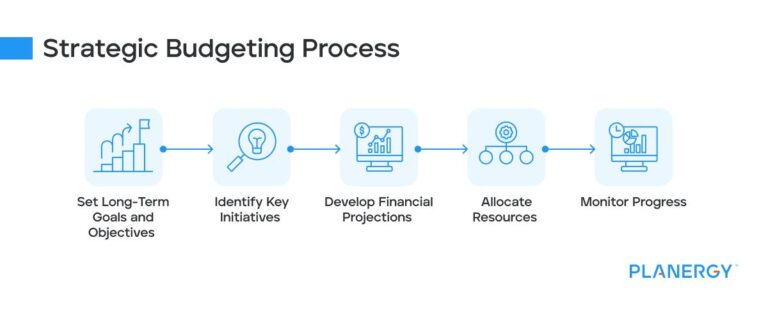Welcome, brave freelancers, to the wild west of income unpredictability and fluctuating project flows! If you’ve ever found yourself budgeting on a rollercoaster ride with a blindfold on, you’re not alone—and you’re in the right place. Freelancing has its perks: the freedom to work in your pajamas, the avoidance of rush-hour traffic, and the ability to declare your kitchen table as your corporate headquarters. But when it comes to managing finances, it’s a whole different ball game. Don’t worry, though! We’re here to provide you with smart budgeting strategies that will help you reign in the chaos and transform your financial ride from a heart-pounding coaster into a smooth, scenic tour. Grab your calculators, as we’re about to turn your freelancing gig into a well-oiled, budget-friendly machine!
Mastering the Art of Freelance Finances without Losing Your Mind
Freelancers, let’s face it: handling finances can sometimes feel like herding cats. To make your life a bit easier (and your wallet a bit heavier), it’s important to stick to a clear and smart budgeting plan. Here are some golden rules: prioritize essential expenses like rent and utilities, set aside funds for taxes (because nobody wants the IRS knocking on their door), and don’t forget to save for those unexpected expenses like your laptop randomly deciding to retire early. Here’s a helpful little list:
- Rent and Utilities: Keep the lights on.
- Taxes: Uncle Sam always gets his cut.
- Emergency Fund: When your laptop goes kaput.
Another hot tip for the financially savvy freelancer: variable income means you need a flexible budget. One month you might be rolling in dough, and the next you could be living on instant noodles. Keeping track of when you get paid and how much you earn can help you plan for the lean months. Here’s a nifty way to organize your freelance income:
| Month | Income ($) | Expenses ($) | Savings ($) |
|---|---|---|---|
| January | 3000 | 2000 | 500 |
| February | 2500 | 1800 | 400 |
| March | 3500 | 2200 | 600 |

Chaos to Clarity: Building a Budget That Doesn’t Feel Like Torture
Let’s face it – budgeting can feel like trying to tame a wild beast, especially for freelancers with unpredictable incomes. But fear not! The key is to make it manageable and even a little fun. Start by breaking down your expenses into two categories:
- Fixed Costs: Rent, utilities, subscriptions (yes, Netflix counts!).
- Variable Costs: Groceries, entertainment, and unexpected coffee shop dates.
Next, you’ll want to get a grip on what’s coming in versus going out. Here’s a little table that can help you plan your monthly budget:
| Category | Estimated Monthly Amount | Actual Monthly Amount |
|---|---|---|
| Earnings | $2,500 | |
| Fixed Costs | $1,200 | |
| Variable Costs | $600 | |
| Savings | $300 | |
| Miscellaneous | $400 |
See that “Miscellaneous” row? It’s your secret weapon against overspending and surprise expenses. Think of it as a budgetary safety net. By tracking your spending and tweaking as needed, you’ll turn chaos into clarity in no time!

Saving for a Rainy Day Without Sacrificing Your Daily Latte
Ever notice how some budgeting tips make you feel like you have to choose between being financially responsible and enjoying life’s little pleasures, like that daily latte from your favorite coffee shop? Good news—it’s entirely possible to save money without waving goodbye to your caffeine fix. The key? Smart and creative strategies that align with your freelance lifestyle without cramping your style. Start by automating your savings. Set up a direct transfer from your checking account to a savings account whenever you get paid. It’s like a money magician working behind the scenes so you can enjoy your macchiato guilt-free.
Next, consider making small tweaks rather than drastic cuts. Love your lattes? Try brewing a few at home each week. You’ll be surprised how much those little savings add up. Use apps that round up your purchases to the nearest dollar and stash the spare change in a savings account. The best part? You won’t even notice it’s happening. Here’s another tip: take advantage of freelancers’ best friend—tax deductions. Deduct business expenses to save more and spend smarter. A little effort on financial management can let you have your cake (or latte) and save for that rainy day too.
| Expense | Monthly Cost | Possible Savings |
|---|---|---|
| Daily Latte | $120 | Brew at home 3 times a week: save $48/month |
| Automated Savings | N/A | Save $50/month |
| App Round-Ups | N/A | Save $20/month |

Expense Tracking: Because “Where Did My Money Go?” is a Terrible Game
Ever checked your bank account and thought, “Was I secretly paying for an underground llama racing team?” Say goodbye to those mysterious money disappearances by tracking your expenses. It’s not about paranoia; it’s about clarity. Start by jotting down every penny that leaves your pocket. Use apps or spreadsheets, the choice is yours. Just be consistent. Knowing how much you spend on lattes versus client lunches will help you make smarter decisions.
- Detailed Categories: This isn’t the food pyramid; break down expenses into specific categories.
- Automate: Use tools that link to your bank account and automatically categorize spending.
- Review Regularly: Make a date with your data. Weekly might be too much; monthly is just right.
| Category | Budgeted | Spent |
|---|---|---|
| Client Meetings | $100 | $85 |
| Software Subscriptions | $50 | $75 |
| Office Supplies | $30 | $20 |
Q&A
Q: What are smart budgeting strategies that freelancers can use?
A: Think of it as taming a wild beast. You need tools and strategies (remember, heavy on the strategy part). Here are some to get you started:
- Create a Budget Spreadsheet: This should be the Holy Grail of your financial life. Track income, expenses, and any surprise purchases (like that impulse buy when you thought you needed a standing desk made from reclaimed Viking ship wood).
- Emergency Fund: This is crucial because sometimes clients disappear faster than Houdini at a magic show.
- Savings Investments: Consider parking some of your earnings in savings or investments, so your money works while you hustle.
Q: How should freelancers handle irregular income?
A: Freelancers, your income might resemble a rollercoaster at an amusement park—unpredictable and sometimes inducing screams. Plan as if you’re bracing for the next loop-de-loop:
- Average Your Income: Take your earnings over several months to find a rough average. Use that number for your monthly budgeting.
- Prioritize Expenses: Essentials first—like rent, utilities, and beans (they’re cheap and versatile). Payday splurges last!
- Buffer Money: Always have a buffer zone account where you can stash extra cash on good months for those not-so-great ones.
Q: Any tips for cutting expenses when you’re in a bind?
A: Sometimes it’s all about channeling your inner minimalist (yes, less really can be more, except for friends on Netflix):
- Cut Subscriptions: Do you really need all 8 streaming services? Keep the one where you’re halfway through binge-watching.
- DIY Everything: From coffee to haircuts - why pay more when you can put those handy YouTube tutorials to good use?
- Negotiate Bills: You’d be surprised how many companies might reduce rates if you just ask politely—or with desperation in your voice.
Q: How can freelancers save for retirement with their unstable income?
A: Retirement might feel as far off as colonizing Mars, but preparation is key:
- Retirement Accounts: Utilize accounts like IRAs (Individual Retirement Accounts) which are designed for freelancers.
- Automate Contributions: Set up automatic transfers to save a percentage of every payment you receive—because it’s harder to miss money you didn’t see.
- Think of Retirement Like a Fancy Coffee Habit: Small, regular contributions add up (and possibly keep you from living on Ramen noodles when you’re 70).
Q: Any final words of wisdom for freelancers trying to manage their budgets?
A: Keep calm and carry a calculator. Budgeting as a freelancer can sometimes feel like solving a mystery novel, but with strategy, consistency, and humor—yes, lots of humor—you’re more than capable of crafting a financial masterpiece. And remember, when in doubt: Be thrifty and think twice before clicking “Add to Cart.”
Future Outlook
As we wrap up our deep dive into smart budgeting strategies for freelancers, remember that while managing finances might feel like taming a wild beast with a teaspoon, it’s entirely possible with the right approach. So, grab your budgeting tool of choice—whether it’s a slick app or an old-school spreadsheet—and start corralling those dollars and cents into neat little rows. Keep an eye on that income, cut down on those unnerving expenses, and channel your inner financial Yoda to build an emergency fund. With these strategies, you won’t just survive freelancing; you’ll thrive, all while sipping a latte you’ve budgeted for like a pro. Now go forth and conquer your freelance finances, one brilliant strategy—and maybe a little laughter—at a time! 💸💪🧩


